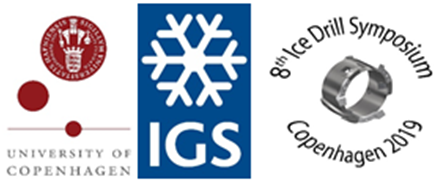Speaker
Description
To this day, there exists a technology gap for drilling to intermediate depth between 30 and 100m. While conventional, manual operated augers are increasingly cumbersome to operate at greater depth, deploying a full sized mechanical rig or a hot water drill is often not feasible for more shallow ice regions due to budget and logistic restraints.
We present a lightweight and self-contained thermal ice drilling system capable of drilling a 60cm hole up to a depth of 100m at a rate of 3.5m/h. It consists of a surface station with an integrated generator, servo winch and control system as well as the melting probe with pendulum stabilization. With a footprint of 105 x 65cm and weight of 120kg, it can be easily transported via snow mobile, helicopter or plane.
After initial setup, the system performs the drilling without supervision and retracts once it reaches the set target depth. When drilling into cold ice, reaming cycles can be performed to keep the borehole open.
We present the development and its technical challenges as well as the operations at the Langenferner Glacier in the Italian Alps where we deployed two thermistor strings and data loggers. In addition, we discuss the possibilities to integrate in-situ sensors into the melting probe for salinity and temperature profiling during drilling.

